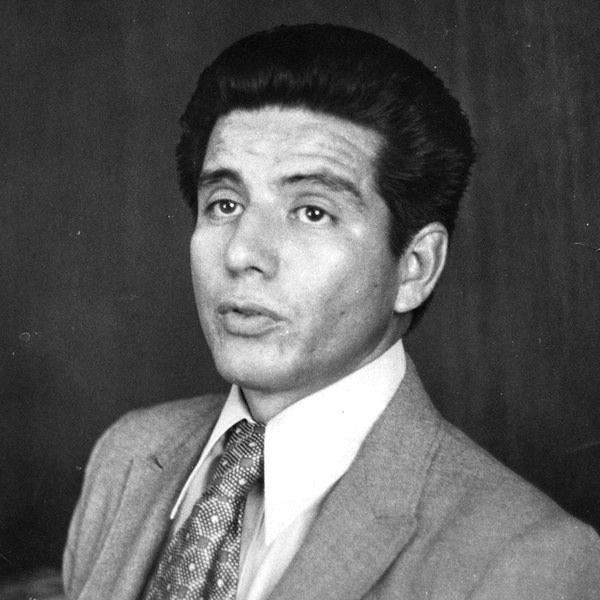
Early Life
Fred Arispe Cruz was born in the year 1939 in San Antonio, Texas. He was a Mexican-American. During his teenage years, he would often get in trouble with the police. However, because of his tough upbringing, Fred was a resilient young man who didn’t allow anything to rattle him. He grew up in the late ‘50s and early ‘60s on San Antonio’s West Side within segregated Mexican-American barrios.3 He would often run with the wrong crowd which would get him in trouble. Many members of his family were in similar boats. They sold drugs and would often get in trouble with the law. His brother, Frank, was killed by the police during a failed hold-up. Fred Cruz was nineteen at the time serving a short sentence for selling marijuana.2
Prison Sentence
Fred Arispe Cruz was twenty-one years old when he was arrested and sentenced to fifty years (35 and 15 year consecutive sentences) for multiple aggravated robbery convictions. He adamantly denied he committed these crimes.1 While locked up he started to focus and develop his spiritual strength. He studied Eastern religions and yoga. He adopted Buddhism and found comfort in its idea that anyone can attain peace of mind from personal understandings of the truth and reality.2
More importantly, Cruz started reading difficult texts in legal theory and philosophy despite having an eighth grade education. He wanted to appeal his case, but could not afford a lawyer. He started to read every law book he could get his hands on at the prison library.6 In 1962, he filed his first-ever pro se appeal for his robbery charge. He used his knowledge studying law to write a lawsuit against the prison system.2 He was fed up with the harsh physical punishments, brutal field labor, and illogical disciplinary hearings that were experienced by the prisoners.
Because of all this, Cruz was denied use of the prison chapel and wasn’t allowed to write to his religious advisor. He was often placed inside solitary confinement as a retaliation by prison officals for his activism or sharing his religious work.3 During his time in solitary, he could not work on his lawsuits and was fed minimal food.2 However, despite everything he went through, he did not give up and was determined to change the ways of the prison and its treatment of other prisoners. He even wrote lawsuits on toilet paper because he was denied writing material.5
Frances Jalet
During his effort to improve prison conditions, Fred Arispe Cruz wrote to Frances Jalet, an attorney that had recently moved to Texas to serve poor plaintiffs. Fred Cruz had read about her in a newspaper and asked for her assistance. Jalet would prove to become a critical ally. Arguably, she played a greater role in challenging the prison system than Cruz while facing as justmany challenges. She helped educate Fred Cruz and other inmates on the justice system, submitted lawsuits for them and arduously fought for prison reform. She even served as a plaintiff along with other inmates in a lawsuit against the Director of the Texas Department of Corrections.3
Partnership
Together, Cruz and Jalet would fight for change within the Texas prison system while also working towards Cruz’s freedom. Along the way they faced many internal and external resistance from the prison system. Jalet’s reputation as a lawyer would constantly be smeared and Cruz would often face physical punishment from prison officials. Prison officials would try to cut contact between Jalet and Cruz. They’d also try to threaten other prisoners who supported Jalet’s and Cruz’s efforts. They would move Cruz and these other prisoners between prisons, cut off correspondence, and physically threaten or punish them.3
Eventually, they would find multiple victories against the prison system for the mistreatment of prisoners and not allowing the prisoners their proper rights. Most importantly, after multiple appeals, Fred Cruz was finally found innocent and was absolved of his 35 year robbery conviction. At the time, that meant he now only faced his 15 year conviction.3,4 In addition to winning good time through another lawsuit, this meant he was free. On 9th March, 1972, Fred Cruz was released. Later on in his life, he ended up marrying the very woman who helped him with his case. Frances Jalet soon became Frances Jalet-Cruz.3
Post-Prison
Unfortunately, after his release, Fred Arispe Cruz was not the same freedom fighter that he was in prison. He was free, but now he was considered just another Mexican convict with no formal education. He would return to the same troubled life that got him into prison and become addicted to heroin. Frances would work to get him treatment, but it was to no avail. Eventually, Fred Cruz would succumb to a drug overdose in 1987 at only 47 years.3
Legacy
Despite his hardships before and after prison, Fred Arispe Cruz went into the depths of Texas’s prison system for almost a decade and didn’t give up until the court heard his cry and let him go free. Throughout it all, he pretty much singlehandedly invented a brand new legal institution by the name of the ‘Jailhouse Lawyer.’5 Despite the abusive and mentally jarring conditions he was placed in, his determination is something that no man or woman should ever forget. He fought for not only his own rights, but the rights of every other prisoner in the state of Texas, who was being wronged by the prison system.6 Not many people know his name, but everyone needs to know his story.
- https://academic.oup.com/jah/article/102/1/73/686880
- http://www.writwritermovie.com/downloads/ww.press.kit.pdf
- www.texasmonthly.com/articles/love-story-upended-texas-prison-system
- http://www.prisonlegalnews.org/news/2009/feb/15/writ-writer-one-mans-journey-for-justice
- https://www.post-gazette.com/ae/2008/07/02/TV-Preveiw-Writ-Writer-details-legal-crusades-of-inmate-Fred-Cruz/stories/200807020208
- https://journals.sagepub.com/doi/abs/10.1177/0096144215589949
